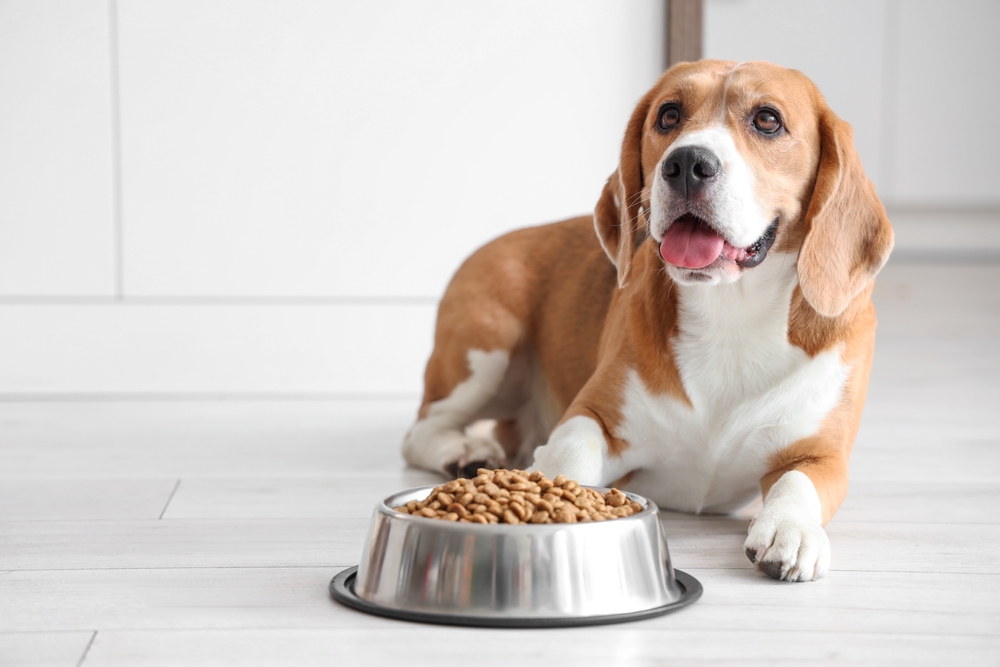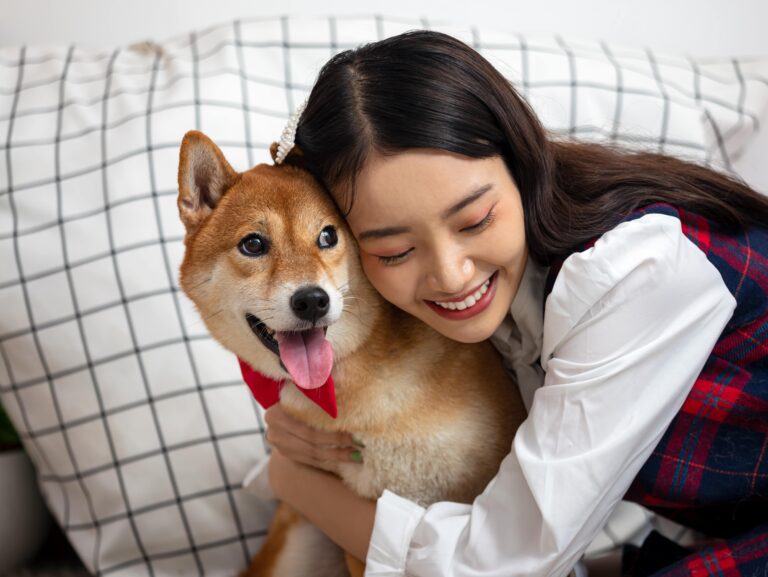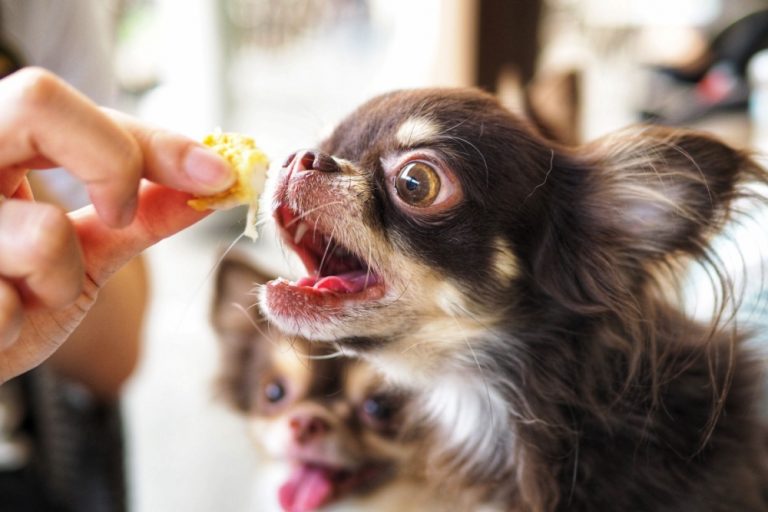List of Healthy Foods for Your Dog
Dogs are a man’s best friend. Spending quality time with these fur babies might mean sharing food with them. However, many pet parents wonder, what foods are not allowed for dogs? Can dogs eat human food? The good news is that there are plenty of healthy foods for dogs. The key is proper preparation and moderation.
In this guide, we’ll explore an array of food options for dogs, from commercial dog food to fruits and vegetables that are safe for your canine companion.
Nutritional Needs of Dogs
Dogs have unique nutritional requirements that we, as pet owners, need to keep in mind when we’re feeding them to ensure their long-term health and happiness. Dogs are omnivores, which means they need a balanced diet that includes proteins, fats, carbohydrates, vitamins, and minerals. Unlike cats which are obligate carnivores and are not naturally able to digest vegetation, dogs can enjoy fruits and vegetables.
A complete doggy diet promotes a healthy immune system, maintains optimal body weight, and provides energy for daily activities. Additionally, nutrients like omega-3 fatty acids and antioxidants keep a dog’s coat and skin shiny.
While it’s tempting to share human food with them, some foods may be toxic and potentially deadly for dogs. Whether you choose commercial dog food, treats, or homemade snacks, always ensure you’re feeding your dog nutrient-dense food.
Best Food for Dogs
Here are some healthy foods for dogs that we highly recommend you incorporate in your pet’s diet:
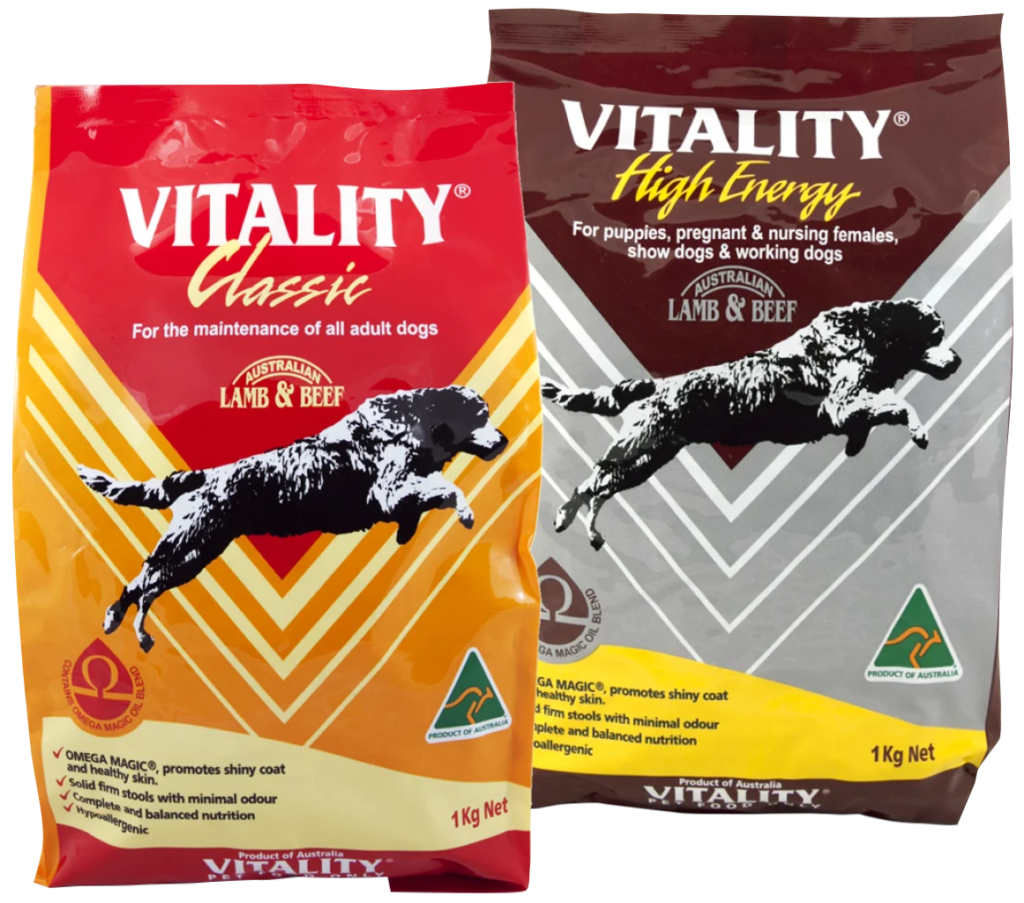
Commercial Dog Food
High-quality commercial dog foods like Vitality dog food are widely available in pet shops and grocery stores. Reputable brands are popular among Filipino pet owners for their balanced formulations that cater to different life stages of dogs.
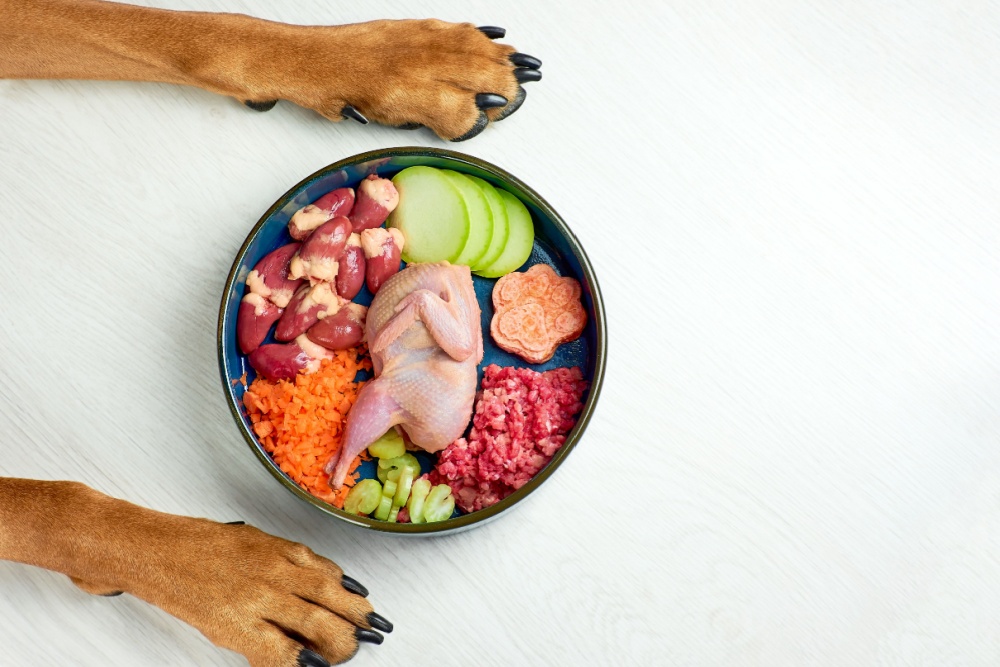
Homemade Dog Food
If you prefer preparing meals at home, consider using locally sourced ingredients. Recipes can include:
- Lean meats (chicken or beef)
- Vegetables (carrots, peas)
- Carbohydrates (brown rice or sweet potatoes)
Ensure that any homemade meals meet nutritional standards by consulting with a veterinarian.
Commercial Dog Food and Human Food
When it comes to feeding your dog, the best approach is a combination of commercial dog food and carefully selected and prepared human foods. Commercially available products such as lamb and beef dog food in the Philippines are formulated to provide balanced nutrition, but adding some human foods can provide extra health benefits.
Human Foods Safe for Dogs
1. Cooked, Unseasoned Chicken, Turkey, or Beef
Cooked and unseasoned chicken, turkey, or beef are all great sources of protein. Make sure that all the bones are removed from these meats to reduce the risk of choking. It’s a common misconception that dogs love to eat bones, but even cooked bones are dangerous. They can splinter in the dog’s gastrointestinal tract and cause issues. So, don’t forget to take away the bones before serving these lean meats to your dog.
2. Cooked, Unseasoned Fish
Cooked and unseasoned salmon, shrimp, and tuna are all safe for dogs to eat. They are also excellent sources of protein and omega-3 fatty acids—nutrients that help maintain strong muscles, provide energy, and strengthen the immune system. Remember to cook fish before feeding it to your dog as uncooked fish can contain harmful parasites.
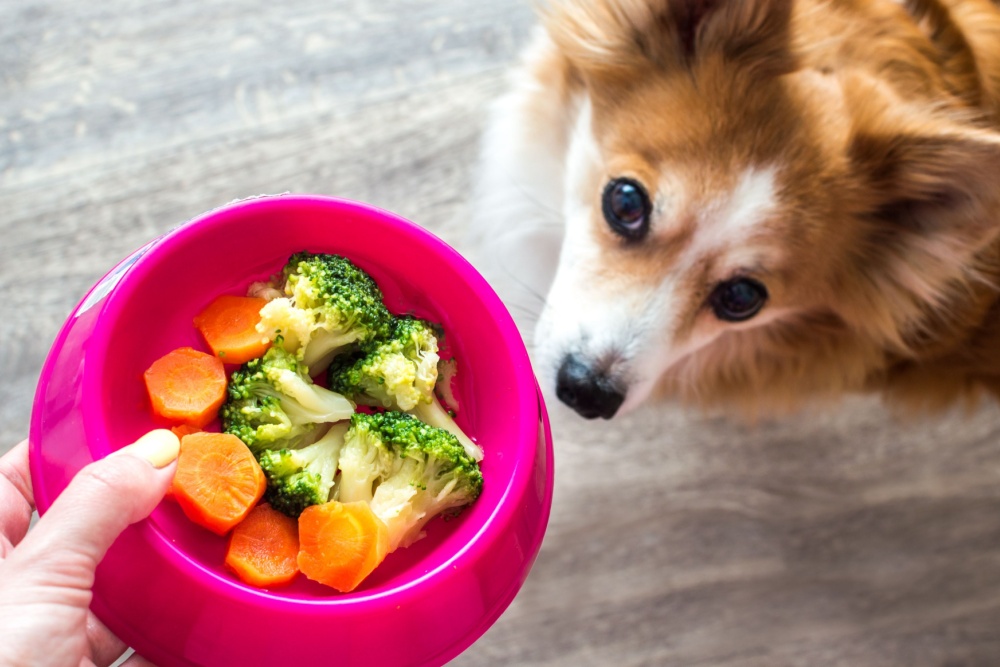
3. Carrots
Carrots are a healthy food for dogs as they are low in calories and contain vitamins, minerals, and fiber. Chewing on carrots can also help remove plaque buildup and promote overall dental health. Make sure to cut them into bite-sized pieces to prevent choking.
4. Sweet Potatoes
Sweet potatoes are a healthy, fiber-rich treat that can aid in digestion. They are packed with vitamins A, B6, and C, which are beneficial for skin and coat health. When cooked and mashed, sweet potatoes add texture to your dog’s meal.
5. Pumpkin
Pumpkin is another food rich in fiber that helps regulate digestion. It’s ideal for dogs with constipation or diarrhea issues. Add a few spoonfuls of plain, cooked pumpkin to your dog’s regular food for more health benefits.
6. Unsalted Peanut Butter
Peanut butter is a favorite treat among many dogs and is a great source of healthy fats, protein, and vitamins B and E. You can serve this tasty treat in moderation or use it in interactive toys to keep your dog entertained and stimulated.

7. Apples
Apples are a crunchy, refreshing snack for dogs and are rich in vitamins A and C. They also contain fiber. Make sure to remove the seeds and core.
8. Watermelon
Watermelons are low-calorie fruits that are high in water content, which keeps dogs hydrated. Remove the seeds first as these can block the intestines.
9. Cucumbers
Cucumbers are also low-calorie snacks, perfect for fur babies who are overweight. They also contain vitamins and minerals, including vitamin K.
10. Brown Rice
Brown rice is a good carbohydrate source for dogs, especially those with sensitive stomachs. It provides energy, is easy to digest, and can be combined with other foods like chicken or beef to create a balanced meal.
Unsafe Food for Dogs
Here’s a list of foods that are not allowed for dogs:

1. Chocolate, Coffee, and Caffeine
One of the top unsafe and toxic foods for dogs is anything that has chocolate, coffee, or caffeine. These foods contain chemicals called methylxanthines, which can cause vomiting, seizures, an abnormal heart rate, and sometimes, even death.
2. Citrus Fruits
Citrus fruits contain citric acid, which can cause stomach upset. In larger quantities, citric acid can result in nervous system depression.
3. Cinnamon
Large amounts of cinnamon may cause irritation, breathing difficulties, vomiting, diarrhea, and liver disease.
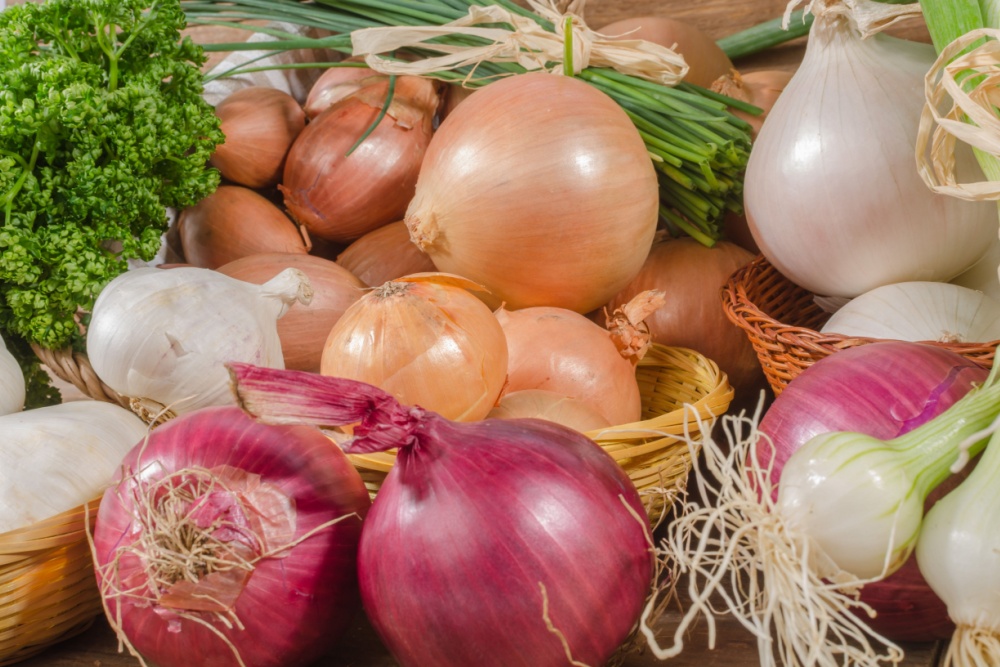
4. Onion, Garlic, and Chives
Onion, garlic, and chives, whether raw, cooked, or powdered, can damage a dog’s red blood cells and lead to anemia.
5. Alcohol
Alcohol is a big no-no! Even a small amount can be dangerous and cause vomiting, diarrhea, and even death in severe cases.
6. Raw Eggs
While cooked eggs are safe and nutritious for dogs, raw eggs can carry harmful bacteria like salmonella, leading to foodborne illnesses.
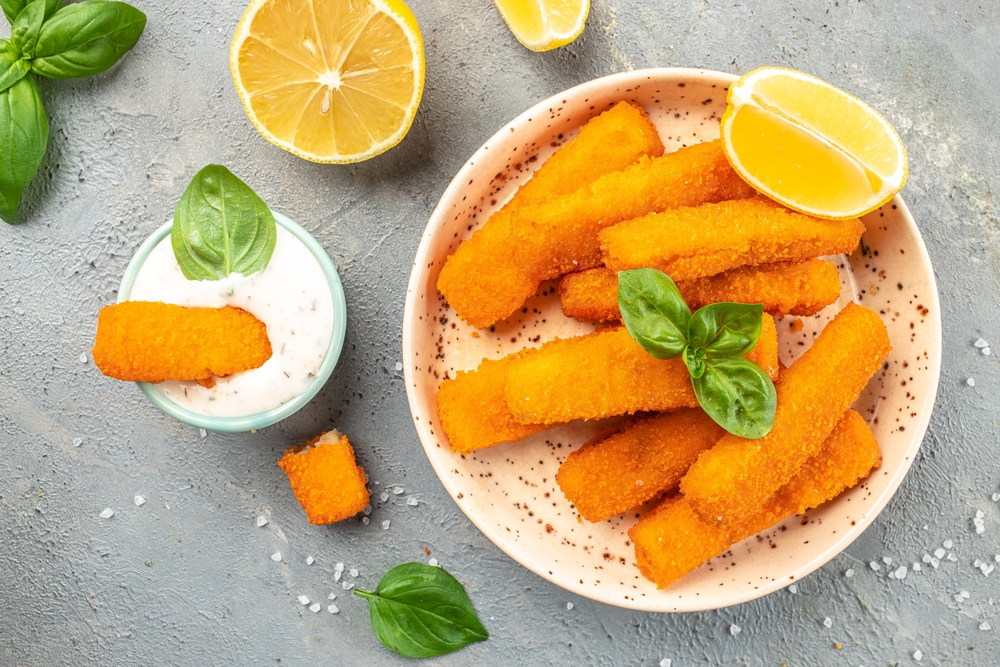
7. Fried or Greasy Foods
High-fat foods such as fried foods and fatty cuts of meat can cause pancreatitis in dogs.
8. Small Bones
Small pieces of bone can easily get lodged in your dog’s esophagus or rupture their stomach and intestinal lining during digestion.
Nourish Your Dog with the Right Foods for a Long and Healthy Life
Providing your dog with a nutritious and balanced diet ensures that your fur baby stays strong and active in the long run. More importantly, always consult a veterinarian before making any dietary changes. We hope this food guide equipped you with the knowledge you need to care for your beloved animal companion!
For more information about dog health and commercial dog food, contact Consumer Care.

